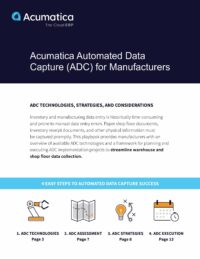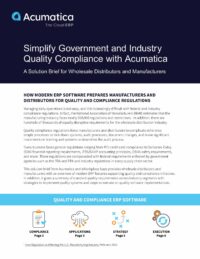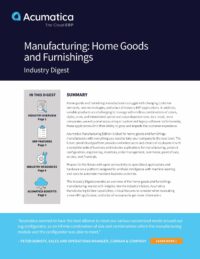The Benefits of an ERP Solution for Product Quality Control
Enterprise resource planning (ERP) software can help manufacturers improve product quality by automating tasks, streamlining workflows, and providing real-time data insights. This can lead to fewer defects, improved efficiency, and reduced costs.
For many manufacturers, Enterprise Resource Planning (ERP) systems are the backbone of their operations. An ERP solution is advanced business management technology that automates workflows, integrates diverse departments, and strengthens collaboration. These features uniquely qualify ERP technology to help manufacturers improve and better manage their product quality assurance and control programs.
Quality assurance (QA) and quality control (QC) are essential aspects of manufacturing, whether it is a production or service. QA is the plan manufacturers have in place to ensure quality requirements are met, while QC is the act of fulfilling said quality requirements.
To manufacture a quality product, you must empower your teams to identify real and potential defects and issues, while helping them communicate and address these concerns. This can be done through a variety of methods, such as quality planning, manufacturing processes, and quality improvement.
By implementing a quality management system (QMS), you can ensure that your products and services meet specific customer expectations, even in mass production. This can lead to increased customer satisfaction and loyalty, as well as a reduction in costs associated with rework and defects.
A modern, comprehensive ERP solution can make all this possible, providing:
· Streamlined communication channels between departments.
· More accurate data and improved data hygiene.
· Complete visibility of inventory and product levels.
· Greater opportunities for product testing and management.
 Canada (English)
Canada (English)
 Columbia
Columbia
 Caribbean and Puerto Rico
Caribbean and Puerto Rico
 Ecuador
Ecuador
 India
India
 Indonesia
Indonesia
 Ireland
Ireland
 Malasya
Malasya
 Mexico
Mexico
 Panama
Panama
 Peru
Peru
 Philippines
Philippines
 Singapore
Singapore
 South Africa
South Africa
 Sri-Lanka
Sri-Lanka
 Thailand
Thailand
 United Kingdom
United Kingdom
 United States
United States




